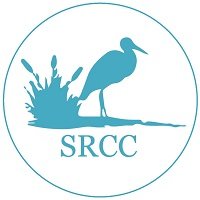Wetlands in Danger
In 1972, the Clean Water Act—an act that established the basic structure for regulating pollutants into the waters of the United States (WOTUS) and regulating quality standards for surface waters—was passed. In the past 25 years or so, different affairs have changed the way this act could function; some helped it dispense further protection, and some tore apart its definition of WOTUS to prevent the act from preserving areas desirable for corporate use. Just last year, the Supreme Court forever damaged the power of the Clean Water Act through the implications of its decision in Sackett v. Environmental Protection Agency (EPA). The choice deprived federal protection from millions of acres of wetlands, allowing these critical habitats to be polluted from agriculture and other industries. Not only does this decision erode years of work protecting US waters from pollution, but it has caused immense direct harm to the health of our environment.
A wetland is an area of land with soil that is covered in water year round or seasonally. Swamps, bayous, lagoons, marshes, estuaries, bogs, and more are all types of wetlands. Though they cover only 6% of Earth’s surface, these ecosystems support 40% of all plant and animal life. While being extremely biodiverse and holding many endangered species, they also provide immense benefits for the human population. They reduce what would be extreme damage costs by absorbing great amounts of floodwater and storm runoff; the roots of wetland plants trap pollutants from dirty and toxic waters, naturally purifying it before it migrates into groundwater and surface waters; they work extremely well as carbon sinks, sequestering large amounts of the world's carbon that would otherwise be in the atmosphere contributing to climate change; they provide a wealth of natural resources, including but not limited to fish and shellfish that make up large percentages of commercial and recreational harvest. Along with groundwater recharge and maintaining stream flow in dry seasons, wetlands have innumerable benefits. All of these aspects make wetlands such cardinal ecosystems to preserve. However, after the Supreme Court decided on the Sackett case, industrial agriculture and other polluters will have access to 2.5 million acres of wetlands to pollute and tear apart due to their own corporate greed.
Though industries are doing their part in harming our environment, actions are being taken to counteract this. After it was forced to change the Clean Water Act to remove millions of acres of wetland from federal protections, the Biden administration joined the international Freshwater Challenge: a global endeavor to restore over 864 million acres of wetlands by 2030. While this is an incredibly large scale project, change begins at smaller levels. There are statutes that provide legislators with other options for safeguarding our wetlands along with ones that can control companies that pollute. Through initiatives like the Farmable Wetlands Program and Wetland Reserve Easements, the US Department of Agriculture (USDA) helps to drastically lessen the damages of wetlands from industrial agriculture.
An amazing way to help the environment is to raise awareness, which starts with being aware of yourself. The Union of Concerned Scientists (UCS) continues to advocate for programs that protect our land and water, and they are a great source of information to keep you informed and updated on current environmental topics.
On a local level, you can help us protect the Shark River by joining, donating, or volunteering with the Shark River Cleanup Coalition (SRCC). Our mission is to enhance water quality and safeguard wildlife and recreational areas in our community. As a 501(c)3 nonprofit, your tax-deductible contributions directly support local environmental efforts. Get involved in hands-on volunteer opportunities, like our Shark River cleanups, and make a tangible difference in Neptune, Neptune City, Belmar, and Wall Township.
